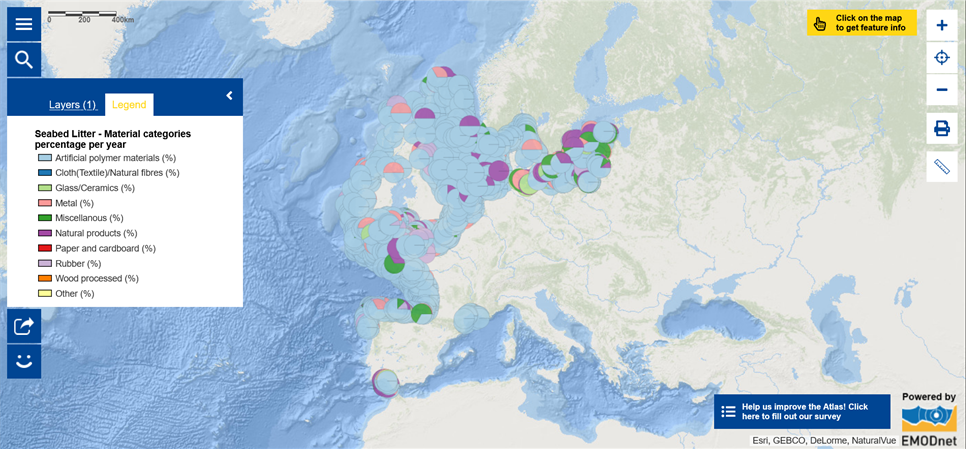Map of the Week – Waste and Pollution – Seabed Litter

On 30 March 2023, International Day of Zero Waste 2023 promoted sustainable consumption and production patterns and raised awareness about how zero-waste initiatives contribute to the advancement of the 2030 Agenda for Sustainable Development . This follows the decision of the United Nations General Assembly on 14 December 2022 to formally recognize the importance of zero-waste initiatives and observe International Day of Zero Waste every year on this date. Humanity generates an estimated 2.24 billion tons of municipal solid waste annually, of which only 55 per cent is managed in controlled facilities. By 2050, this could rise to 3.88 billion tons per year. The waste sector is a significant contributor to greenhouse gas emissions in urban settings and biodiversity loss. Around 931 million tons of food is wasted each year, and up to 37 million tons of plastic waste is expected to enter the ocean annually by 2040. Zero-waste initiatives can foster sound waste management and minimize and prevent waste. This contributes to reducing pollution, mitigating the climate crisis, conserving biodiversity, enhancing food security and improving human health. [1]
Marine litter is identified as one of the fastest growing threats to the health of the ocean, the diverse marine life it supports and, ultimately, humans consuming food from the ocean. The amount of plastics in the ocean has been estimated by United Nations to 75-199 million tons. [2] Marine litter is found on coasts, on the water surface, in the water column, on the seabed and even in the deep seas where it causes harm to entire marine ecosystem! Large quantities of litter are transported from land to the sea by rivers. [3] We can therefore all contribute to the reduction of marine litter wherever we live. To do this efficiently, it is essential to address the issue at the source and to reduce pollution by taking actions in our daily lives and applying the five R’s principle – refuse, reduce, reuse, redesign and recycle.
Wish to know more and learn what you can do to protect the ocean?
- Explore the Map of the Week and click on the graphs in the map to learn more about seabed litter. This map identifies the percentage of litter divided into several categories (glass, textile, metal, polymer, etc.).
- Learn about the European Union’s Zero pollution action plan for water, air and soil .
- Become more knowledgeable about Sustainable Development Goal (SDG) 12 to ensure sustainable consumption and production patterns and read about progress made on achieving SDG 12 .
- Find out what you can do to protect the ocean !
The data in this map are provided by EMODnet.
[1] https://www.unep.org/events/un-day/international-day-zero-waste-2023
[2] https://ec.europa.eu/environment/marine/good-environmental-status/descriptor-10/index_en.htm
[3] https://water.europa.eu/marine/state-of-europe-seas/pressures-impacts/marine-litter
